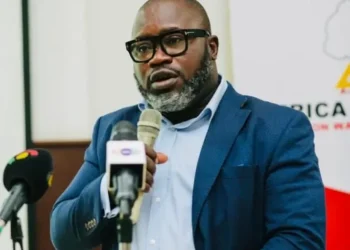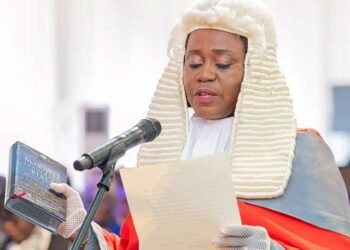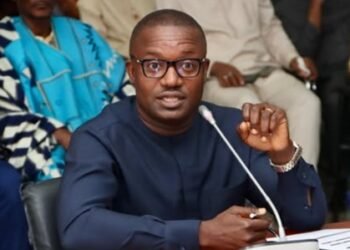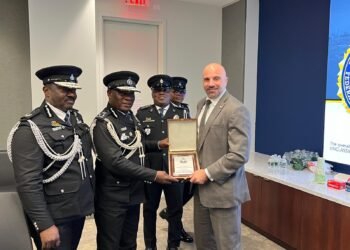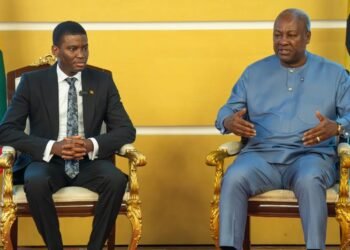The Member of Parliament for North Tongu, Hon. Samuel Okudzeto Ablakwa has expressed deep concerns regarding the consistent pattern of police brutality and excessive force deployed against demonstrators in the country.
He began by underscoring the significance of democratic rights, noting that every Ghanaian citizen has the constitutional right to demonstrate peacefully.
“Ghana is a democratic state. Every citizen has the right to demonstrate,” he emphasized, setting the tone for his reflections on past and present protests.
Hon. Ablakwa drew from personal experience, recalling his participation in the 1998 Mulberry War demonstrations, which he described as a defining moment in his life as an 18-year-old activist.
The protest, he noted was centred around resisting what they termed “cost sharing,” which was essentially a pushback against attempts to shift the burden of education costs to students.
According to Ablakwa, student activists argued that education should remain a right, enshrined in Article 25 of Ghana’s Constitution, and not be turned into an elitist privilege.
“We were demonstrating against cost sharing, which we called cost shifting… education should remain a right under article 25 of the constitution.”
Hon. Samuel Okudzeto Ablakwa, MP North Tongu Constituency
However, Ablakwa noted that this protest, like many others, ended in violence and brutalities, highlighting a recurring pattern in the handling of demonstrations by the Ghana Police Service.
A History of Police Brutality
Hon. Ablakwa went on to provide a historical overview of police misconduct during demonstrations in Ghana, from the 1998 protests to more recent demonstrations like the “Let My Vote Count” protest, where a participant tragically lost an eye.
He lamented that the Ghana Police Service has consistently failed in its duty to protect demonstrators and maintain order without resorting to violence.
“The Ghana Police Service has not covered itself in glory historically when it comes to policing demonstrations,” he remarked, adding that their role should be to protect both demonstrators and bystanders, ensuring public safety.
Instead, Hon. Ablakwa stated that the police have often exacerbated tensions, contributing to the violence and bloodshed that have marred many demonstrations over the decades.
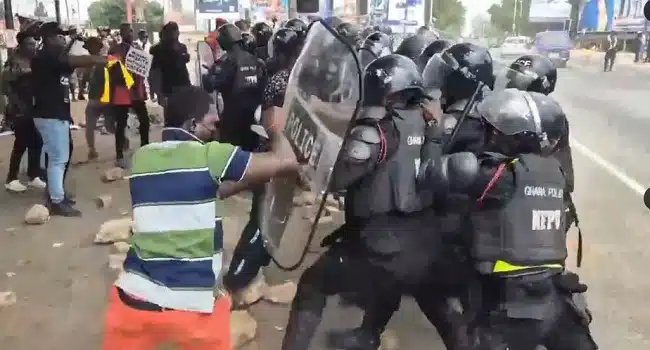
Calls for Police Reform
Hon. Ablakwa acknowledged that several attempts have been made to reform the Ghana Police Service to improve its relations with civilians.
“There have been many reports about how to really, transform the police service from that Gestapo image into a more responsible, a more friendly, force,” he observed.
According to him, while some progress has been made, incidents of excessive force and brutality continue to overshadow these efforts.
The Galamsey Demonstrations: Excesses on Both Sides
Turning his attention to the recent “galamsey” (illegal mining) demonstrations, Hon. Ablakwa made it clear that while he supported the core objective of the protest—demanding an end to illegal mining due to its destructive effects on Ghana’s environment and public health—he could not condone the excesses exhibited by some demonstrators.
He criticized those who engaged in unruly behavior, such as attempting to remove the key to a government building, which he found to be “totally needless.”
Nevertheless, he emphasized that these actions did not justify the extreme response by the police. “The response must still be on the scale, in the balance. It has to be commensurate,” he said, arguing that the police’s high-handedness was disproportionate to the demonstrators’ actions.
Human Rights Violations and International Concerns
Hon. Ablakwa expressed outrage at the police’s treatment of demonstrators, particularly the arbitrary arrests of bystanders and the inhumane conditions under which many detainees were being held.
He cited examples of individuals who were not part of the demonstration being rounded up and detained, including an 8-year-old girl and an elderly woman who was carrying a gallon of water. “Why do you arrest an 8-year-old?” he questioned, expressing disbelief at the police’s indiscriminate arrests.
More disturbingly, Hon. Ablakwa highlighted reports of detainees being denied access to essential medications, including an asthmatic patient who was allegedly refused an inhaler while in police custody.
“There’s an asthmatic patient from the evidence I have here… being denied their inhalers,” he stated, pointing to what he called “clear accounts” of human rights violations.
These actions, according to Ablakwa, have attracted international attention and condemnation, with major media outlets like CNN expressing shock at the police’s behaviour.
“The international community… are totally shocked at what is happening in Ghana. They can’t believe it,” he noted, further amplifying the gravity of the situation.
Distinguishing Activism from Anarchism
Hon. Ablakwa drew a clear line between legitimate activism and anarchism, insisting that the excesses exhibited by some demonstrators should not overshadow the valid grievances being raised.
He warned against confusing the two, stating, “There is a clear distinction between activism and anarchism. So we have activists, and we have anarchists.”
According to him, while anarchism has no place in Ghana’s democratic framework, peaceful activism is a constitutional right that must be respected and protected.
Conclusion: A Call for Accountability
In conclusion, Hon. Ablakwa reiterated his condemnation of the excessive force used by the police, while also acknowledging the need for demonstrators to avoid unnecessary provocations.
He called for a balanced and restrained approach from law enforcement, emphasizing that brutality only serves to escalate tensions and undermine the democratic process.
“The excesses cannot be accepted,” he affirmed, urging both demonstrators and the authorities to act within the bounds of the law.
As a final note, Hon. Ablakwa aligned himself with former President John Mahama and other prominent figures who have called for accountability and restraint in the handling of demonstrations.
He called on the Ghana Police Service to learn from these incidents and work towards building a more civil and constructive relationship with the public, ensuring that future demonstrations can proceed without violence or unnecessary disruptions.
READ ALSO: MTN Ghana Sees 0.45% Decline Amid Strong Year-to-Date Gains on GSE





